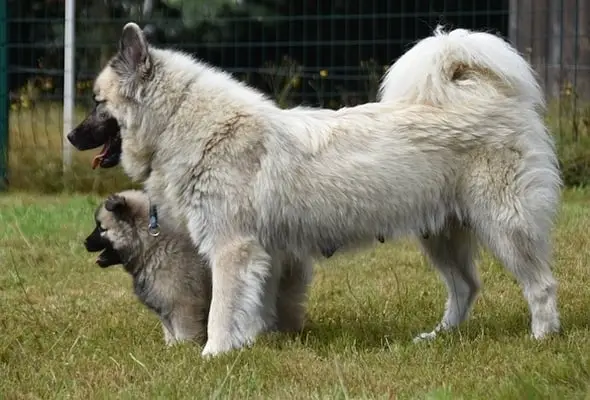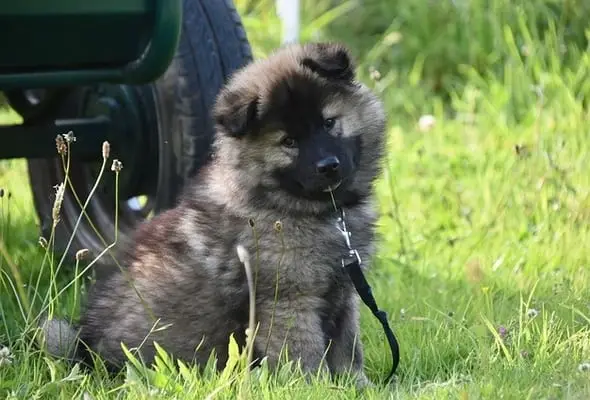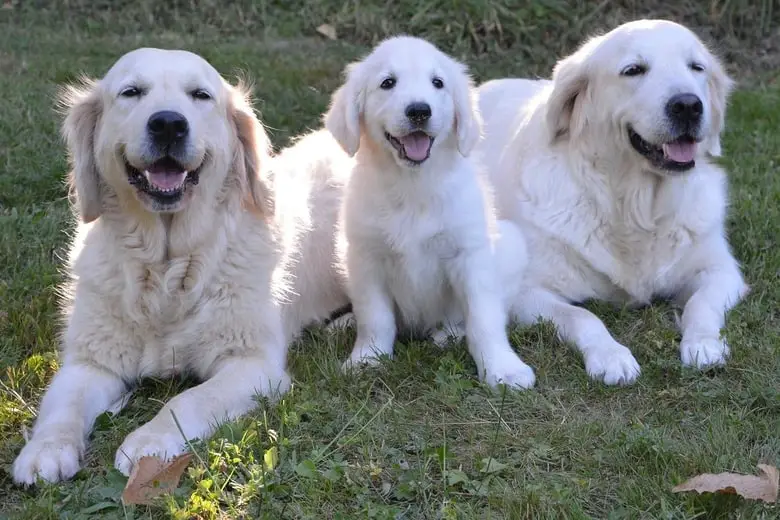Thinking about adding a new canine companion to your family? Puppies are pure joy wrapped in a little furry package, but you may have concerns about their behavior or trainability. If you have an older dog, you may have wondered: ‘Do puppies learn from older dogs?’
In this article, we will answer the question above, but we will also explain the training and behavioral issues that can arise in pups, and the benefits of housing a puppy with an older dog. We hope you find this article helpful and can incorporate some things into your dog’s daily routines!
Do Puppies Learn From Older Dogs?
Puppies do learn from other dogs. Just like you may have learned from an older sibling or cousin, puppies that have older housemates typically learn all about how to be a dog from their sibling or housemate.
You may notice that your puppy begins to form a close bond with your older dog or vice versa, and this can be a really great thing! Your puppy will observe how your older dog behaves, plays, and interacts with others and may begin to mimic their actions.
If your older dog is well trained, it may be helpful to train your puppy alongside your older dog, so they can get the gist of the commands a little easier.
How Long Does It Take for a Puppy to Learn a Habit?
It takes a puppy around 20-30 days to fully learn a new habit. However, this may be different for individual pups. The most important part of training a puppy is consistency, if you aren’t constantly reaffirming their commands they may begin to forget how to properly perform them.

Bad habits take about the same time to form in a puppy as well, so be on the lookout for any unwanted behaviors your pup may begin to display!
An older dog could be a great help when training a new puppy, especially if they are knowledgeable about the actions and commands you are working on with your pup.
Dogs are wonderful animals who (mostly) want nothing more than to please their owners, and your older dog can help teach the pup what behavior makes you happy!
Will a Puppy in Training Pick Up Bad Habits?
A puppy can pick up bad habits in training, even more so if they are in a training class with other puppies. The best way to combat this is with consistent training outside of any classes they may be enrolled in, and correction of any unwanted behaviors.

You can combat bad behaviors by correcting your puppy with the proper behavior that you want to see. If your puppy thinks that chasing you around the house and chewing furniture means they get playtime, do not encourage it!
Correct your puppy with a curt ‘no’ and then we recommend placing your puppy on a brief 15-minute time out in either a crate, playpen, or an enclosed dog-safe area.
This is where housing an older dog with a puppy can be very beneficial, as older dogs can sometimes take on more of a mentor-like role with a puppy, and encourage them to behave in a way that they know makes you happy.
Can Puppies Naturally Unlearn Bad Habits?
In most cases, puppies cannot naturally unlearn bad habits. A puppy will continue to repeat behaviors and habits that they find rewarding, and will not stop them until you teach them that bad behaviors are not rewarded.
We do recommend keeping a close eye on any puppy that is still young, as they have habits of getting themselves into trouble when not observed. A great way to do this is by ignoring your dog when they perform bad behaviors.
If your puppy thinks that biting and chewing on your arms or legs means you will pay attention to them, ignore them! Don’t pet them, talk to them, or even look at them, as they will take the smallest sign of your attention as a reward.
Consistent mental stimulation and training sessions promote good behavior in your puppy, so try to have dedicated play time, and dedicated training time. Do not combine the two, as pups may have a hard time differentiating between play and work.
Other Benefits of Having a Puppy and Older Dog Together
There are endless benefits of housing a puppy and an older dog together.
We previously mentioned the possibility of an older dog being able to teach the puppy most of the house rules, but a puppy can encourage an older dog to get more active and enjoy life a little more, which can be helpful for an older dog with joint or weight problems.
Canines are social creatures, so most dogs enjoy having a housemate to relax and play with can substantially boost their overall mood and health.
This isn’t the case for all dogs, though. We recommend always using caution when introducing a new puppy to an older dog, especially if the older dog is larger and doesn’t enjoy the company of other animals.
Companionship with housemates is fairly common, and can improve a dog’s overall quality of life! Having a housemate can lower stress levels in dogs, and can offer a form of comfort, safety, and security when they are not able to receive it from their owners.
We still recommend having one on one time with each dog to avoid any jealousy arising, like taking turns walking them around the block or going for a ride in the car.
Conclusion
In this article, we covered the positive outcomes of housing a puppy with an older canine, and answered the question, ‘Do puppies learn from older dogs?’ We hope you found this article helpful, and wish you the best of luck with your new pup!
If you feel that you need more information about this topic, you can find free online resources like articles that have been uploaded by veterinary professionals, as well as extremely helpful videos that have been posted to YouTube.

